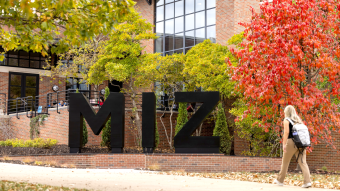July 16, 2021
Transcript
Brian Consiglio: As access to HIV treatment has improved over time, the number of older adults surviving with and managing their HIV continues to grow, particularly in South Africa, where more than one-fifth of people over age 50 are infected with the virus.
In a recent research study, University of Missouri professor Enid Schatz spoke with older adults living with HIV in South Africa to better understand the barriers to accessing HIV treatment as they grew older.
Schatz: “Some of the key things we found in terms of barriers were lack of transportation or mobility issues making it hard to get to the clinic, but family support really made a difference in these areas because kids or grandkids would go to the clinic to pick up the medication for them or remind them to take the medication.”
Consiglio: The findings reflect changing attitudes about HIV among younger generations who just want to help their family get the care they need to be healthy. As the stigma surrounding HIV and AIDS continues to decrease, more young people are helping their older family members with the virus find treatment.
Schatz: “So the overall goal of my research is to make sure older adults in South Africa and other places have good access to care, and anything we can do to understand their needs and make sure they are getting what they need to be healthy and live long really contributes to this outcome.”
Consiglio: For more on this research, visit showme.missouri.edu.
I’m Brian Consiglio, with a Spotlight on Mizzou.



